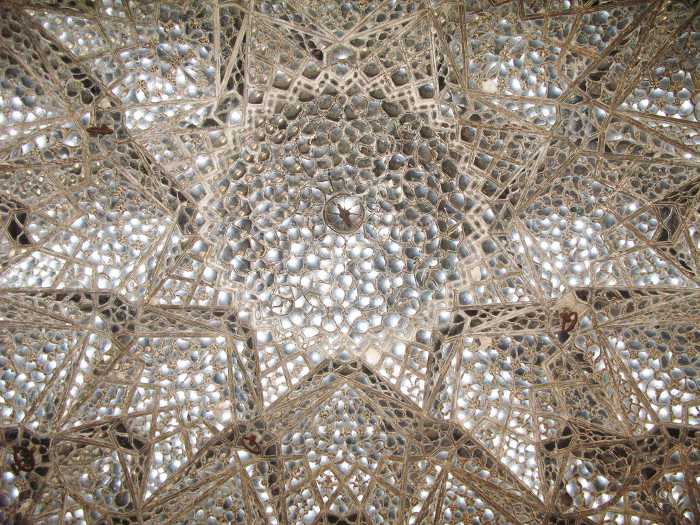FWP:
SETS == HI; MUSHAIRAH
ARCHERY: {6,2}
GAZE: {10,12}
MIRROR: {8,3}
SWORD: {1,3}
For general discussion of the structural qualities of this ghazal, see {115,1}.
Here's a beautiful twist on the old puzzler about the irresistible force meeting the immovable object. The beloved's glance is a fatal dagger; her airs and graces are un-eludable; anyone or anything rash enough to come before her and look her in the eye is done for. (In fact, this makes the beloved sound like the proverbial basilisk, or a Medusa.)
So what happens if what comes before her is a mirror, bearing her own image? When the dagger of her glance duels with the reflected dagger of her glance, can there be a winner? Can there even be a survivor of such a collision-- might they not explode each other, like matter and anti-matter? Why would the reflection take such a risk and come before her? Why would she take such a risk and let the reflection come before her? Thus the hii works beautifully-- either it's 'only' her own reflection, or it's 'emphatically' her own reflection, that's in question.
This is a classic mushairah verse, ideal for oral presentation-- the first line is uninterpretable until we hear the second, and the second is uninterpretable until the 'punch' at the very end.
On the colloquial sahii , see {9,4}. As for the awkward 'un-eludable', I made it up because 'inescapable', the obvious choice, is too fossilized as a general adjective in English; it has mostly lost the sense of the chase. The literal meaning of be-panaah is 'without refuge'-- something from which there is no refuge, something that hunts you down no matter how desperately you flee.
Compare {438x,6}, a less powerful presentation of a similar idea.


Nazm:
The meaning is that nobody is able to come before you, whether it be some other, or your own reflection. Even if in a mirror your dagger and arrow come before you, then what state will you be in? (123-24)
== Nazm page 123; Nazm page 124